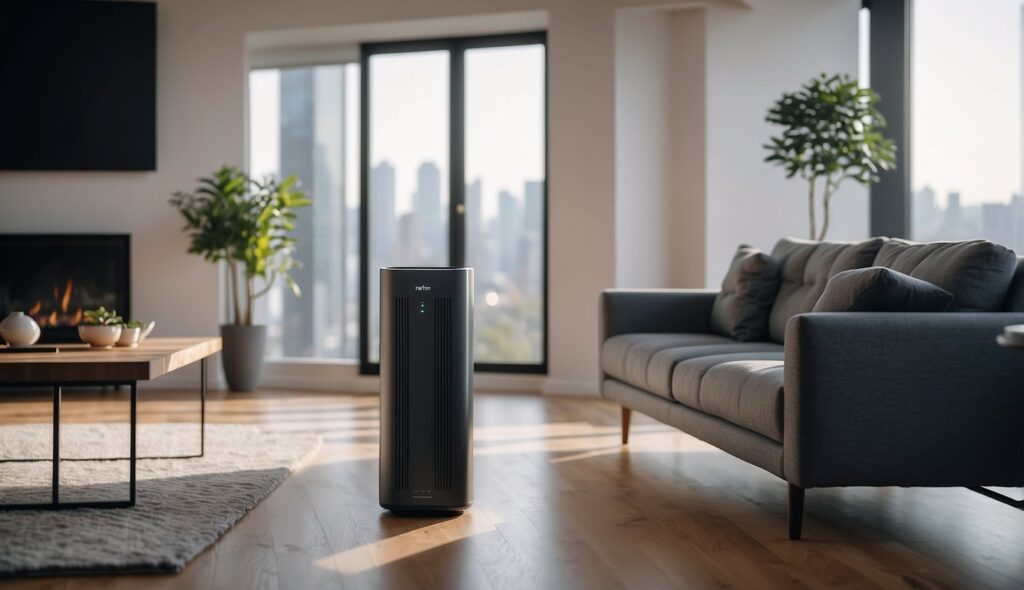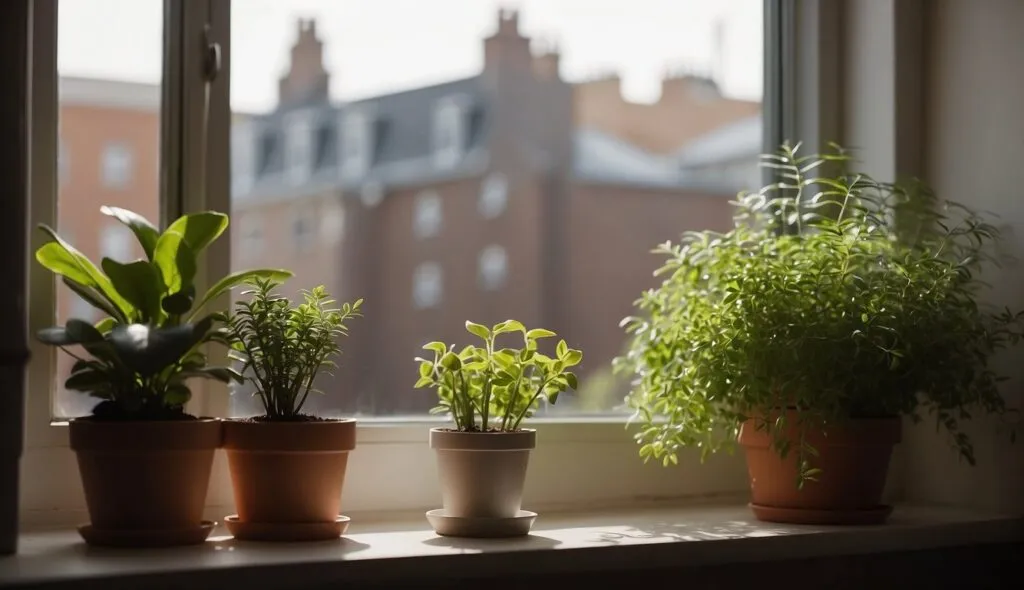If you live in an apartment, you may be concerned about the quality of the air you breathe. Indoor air pollution is a real issue that can cause health problems like headaches, fatigue, and respiratory issues. Fortunately, there are natural air cleaning solutions that can help improve the air quality in your apartment and keep you healthy.
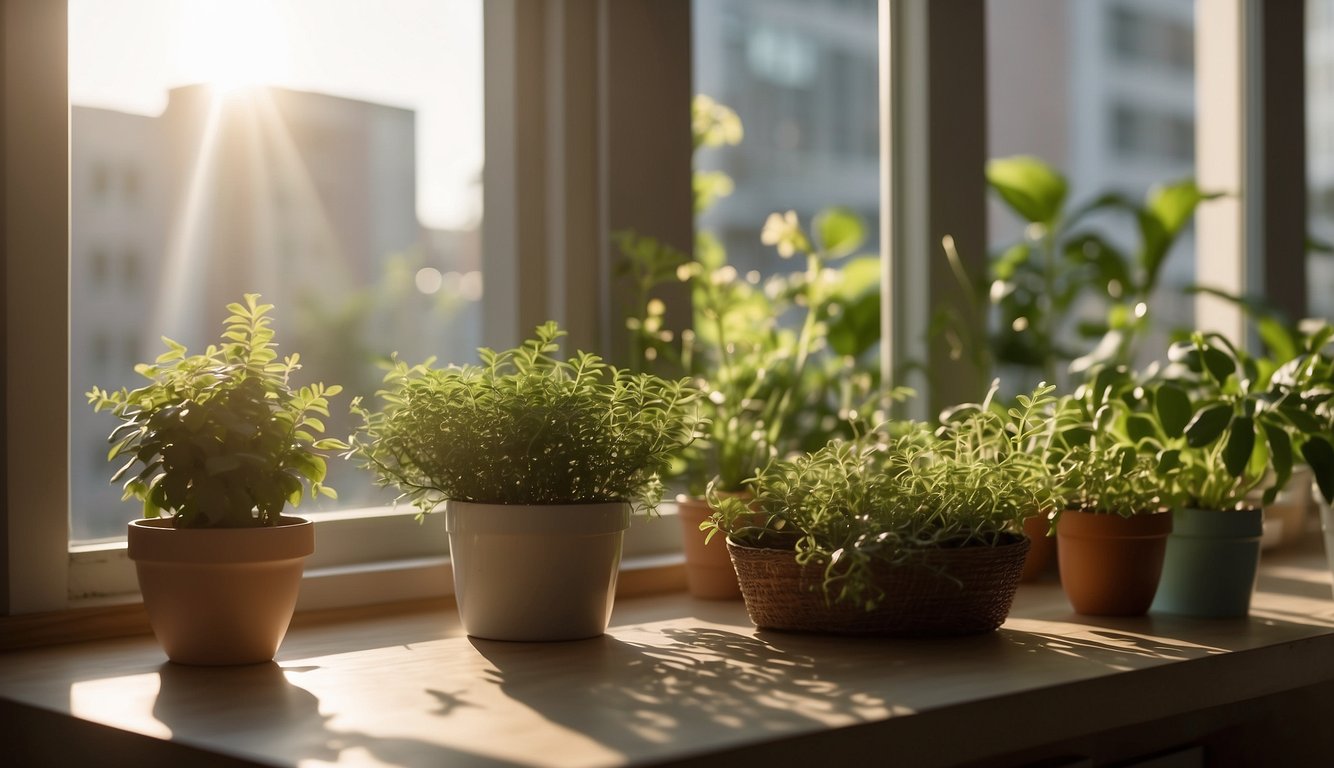
Understanding indoor air pollution is the first step in finding ways to combat it. Poor indoor air quality can be caused by a variety of factors, including dust, mold, pet dander, and chemicals from cleaning products. These pollutants can accumulate in your apartment and cause health problems over time. In this article, we’ll explore the health implications of poor air quality and provide tips for purifying the air in your apartment naturally.
Table of Contents
Key Takeaways
- Indoor air pollution can cause health problems like headaches and respiratory issues.
- Natural air cleaning solutions can help improve the air quality in your apartment.
- Understanding the causes of indoor air pollution is the first step in finding ways to combat it.
Understanding Indoor Air Pollution
As we spend most of our time indoors, it is important to have good indoor air quality. Poor indoor air quality can cause health problems such as allergies, respiratory issues, and even cancer. Understanding indoor air pollution is the first step towards improving the air quality in our apartments.
Pollutants
Pollutants are substances that can cause harm to human health or the environment. Indoor air pollutants can come from various sources such as furniture, building materials, and smoking. Common indoor air pollutants include dust, formaldehyde, benzene, trichloroethylene, and volatile organic compounds (VOCs).
Dust
Dust is a common indoor air pollutant that can cause respiratory problems and allergies. Dust can come from various sources such as pet dander, pollen, and dead skin cells. Regular cleaning and vacuuming can help reduce dust in our apartments.
Formaldehyde, Benzene, and Trichloroethylene
Formaldehyde, benzene, and trichloroethylene are common indoor air pollutants that can cause health problems such as cancer and respiratory issues. These pollutants can come from building materials, furniture, and paint. Choosing low-emitting products and materials can help reduce these pollutants in our apartments.
Volatile Organic Compounds (VOCs)
VOCs are chemicals that can cause health problems such as headaches, dizziness, and respiratory issues. VOCs can come from various sources such as cleaning products, air fresheners, and pesticides. Using natural products and increasing ventilation can help reduce VOCs in our apartments.
Mold and Bacteria
Mold and bacteria are common indoor air pollutants that can cause health problems such as allergies and respiratory issues. These pollutants can grow in damp areas such as bathrooms and kitchens. Regular cleaning and reducing humidity levels can help reduce mold and bacteria in our apartments.
Carbon Monoxide
Carbon monoxide is a colorless and odorless gas that can cause health problems such as headaches, dizziness, and nausea. Carbon monoxide can come from various sources such as gas stoves and heating systems. Installing carbon monoxide detectors can help detect this gas in our apartments.
Improving indoor air quality in our apartments can help improve our health and well-being. By understanding indoor air pollution and taking steps to reduce it, we can create a healthier living environment for ourselves and our loved ones.
Health Implications of Poor Air Quality
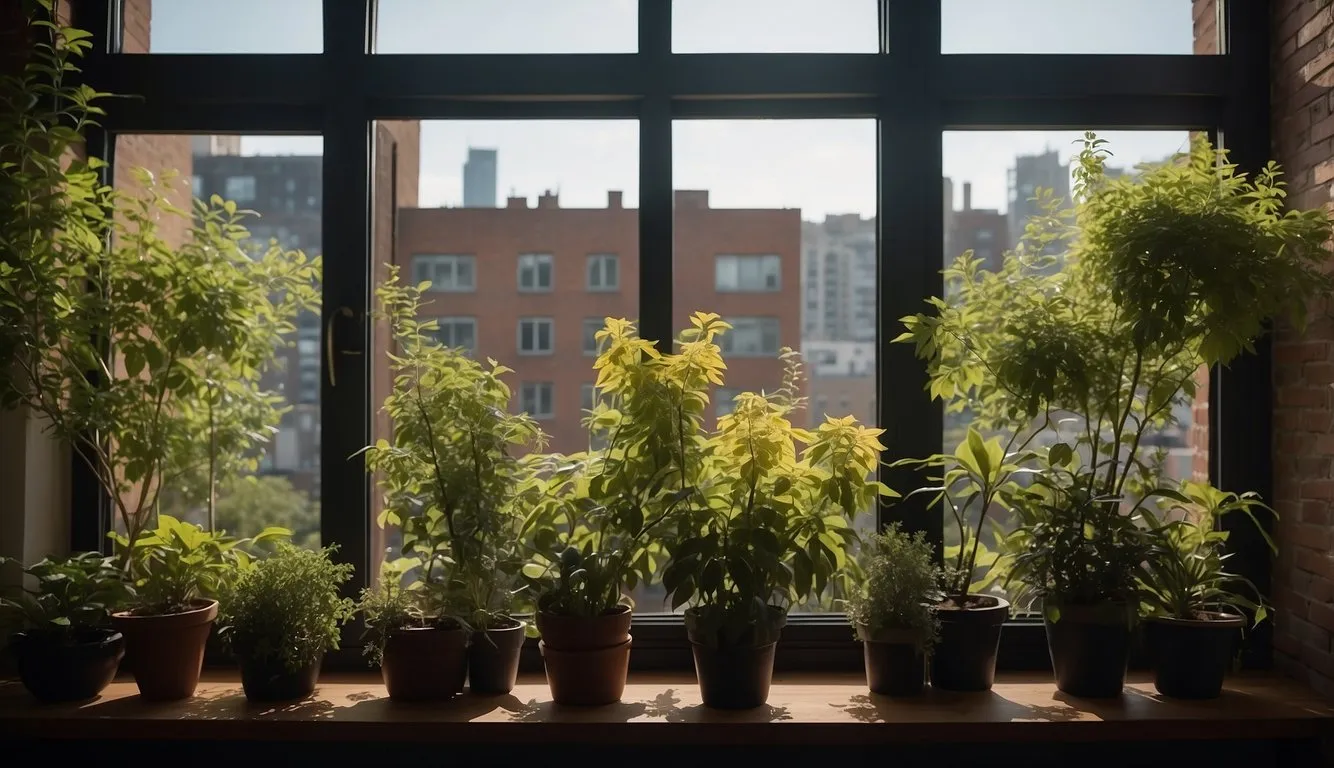
As we spend most of our time indoors, the quality of the air we breathe inside our apartments is essential for our health. Poor indoor air quality can have significant health implications, especially for those who are sensitive to allergens, have respiratory conditions, or weakened immune systems.
Exposure to indoor pollutants can cause a range of health problems, from mild symptoms such as headaches, fatigue, and irritation of the eyes, nose, and throat to more severe conditions such as asthma, allergies, and respiratory diseases. Children and the elderly are particularly vulnerable to the effects of poor indoor air quality.
One of the most common indoor pollutants is smoke, which can come from cooking, tobacco, or burning candles. Smoke can cause respiratory irritation and trigger asthma attacks. To reduce the impact of smoke, it is essential to ensure proper ventilation and avoid smoking inside the apartment.
Another common indoor pollutant is dust, which can contain allergens such as pollen, pet dander, and mold spores. Exposure to these allergens can cause allergic reactions and exacerbate asthma symptoms. To reduce the impact of dust, it is essential to clean regularly and use air purifiers with HEPA filters.
In conclusion, poor indoor air quality can have severe health implications, especially for those who are sensitive to allergens, have respiratory conditions, or weakened immune systems. To improve the air quality in our apartments, we need to take proactive measures such as proper ventilation, regular cleaning, and using air purifiers with HEPA filters.
Air Purifying Solutions
When it comes to improving indoor air quality, there are two main types of air purifying solutions: natural air purifiers and mechanical air filters.
Natural Air Purifiers
One of the most effective ways to naturally purify indoor air is by using houseplants. According to a study by NASA, certain houseplants are effective at removing indoor air pollutants such as benzene, formaldehyde, and trichloroethylene. Some of the best air-purifying plants include Golden Pothos, Peace Lily, Boston Fern, Snake Plant, English Ivy, Dracaena, Bamboo Palm, Dragon Tree, Lady Palm, and Spider Plant.
Another natural way to clean indoor air is by using beeswax candles. These candles release negative ions, which attach to and remove positively charged particles such as dust, pollen, and air pollution. Similarly, salt lamps are another natural way to clean indoor air. Made from Himalayan salt crystals, they release negative ions that may help clean the air in other ways.
Essential oils are another natural air purifying solution. Some essential oils, such as tea tree oil and eucalyptus oil, have antimicrobial properties that can help kill airborne bacteria and viruses. However, it is important to note that essential oils should be used with caution and in moderation, as they can be harmful if ingested or used improperly.
Mechanical Air Filters
Mechanical air filters are another effective way to purify indoor air. These filters work by trapping airborne particles such as dust, pollen, and pet dander. There are several types of mechanical air filters, including HEPA filters, activated carbon filters, and UV-C light filters.
HEPA filters are the most effective type of mechanical air filter, as they are designed to trap particles as small as 0.3 microns. Activated carbon filters are effective at removing odors and volatile organic compounds (VOCs) from the air, while UV-C light filters use ultraviolet light to kill airborne bacteria and viruses.
It is important to note that mechanical air filters should be replaced regularly, as they can become clogged and lose their effectiveness over time. Additionally, it is important to choose the right size air filter for your HVAC system, as using the wrong size filter can reduce airflow and decrease the efficiency of your system.
In summary, there are several effective air purifying solutions available to improve indoor air quality. Natural air purifiers such as houseplants, beeswax candles, and essential oils can help remove indoor air pollutants, while mechanical air filters such as HEPA filters and activated carbon filters can trap airborne particles and remove odors.
Selecting the Right Houseplants
When it comes to selecting houseplants for natural air cleaning, there are a few things to keep in mind. First and foremost, you want to choose plants that are known for their air-purifying abilities. Some of the best air purifying plants include snake plants, spider plants, peace lilies, dracaena, bamboo palm, ivy, Boston fern, English ivy, lady palm, spider plants, pothos, golden pothos, aloe vera, red-edged dracaena, money plant, Chinese evergreen, reed palm, chamaedorea seifrizii, and sansevieria trifasciata.
Next, you want to consider the specific needs of each plant. Some plants require more light than others, while some prefer to be kept in moist soil. It’s important to choose plants that will thrive in the conditions of your apartment. For example, if you have a lot of natural light, you may want to consider a plant like the spider plant, which can handle bright, indirect light. On the other hand, if you have limited natural light, a plant like the peace lily may be a better choice, as it can thrive in low to medium light.
Another factor to consider is the level of maintenance required for each plant. If you’re new to indoor plants, you may want to start with low-maintenance options like snake plants or Chinese evergreens. These plants require minimal care and can still do a great job of purifying the air in your apartment.
Lastly, you want to choose plants that will complement your decor and personal style. There are many different types of air purifying plants, from ferns to succulents, so you’re sure to find something that fits your aesthetic.
Overall, selecting the right houseplants for natural air cleaning is all about finding a balance between air-purifying abilities, specific plant needs, maintenance level, and personal style. By choosing the right greenery for your apartment, you can enjoy cleaner, fresher air and a more beautiful living space.
Maintaining Indoor Air Quality
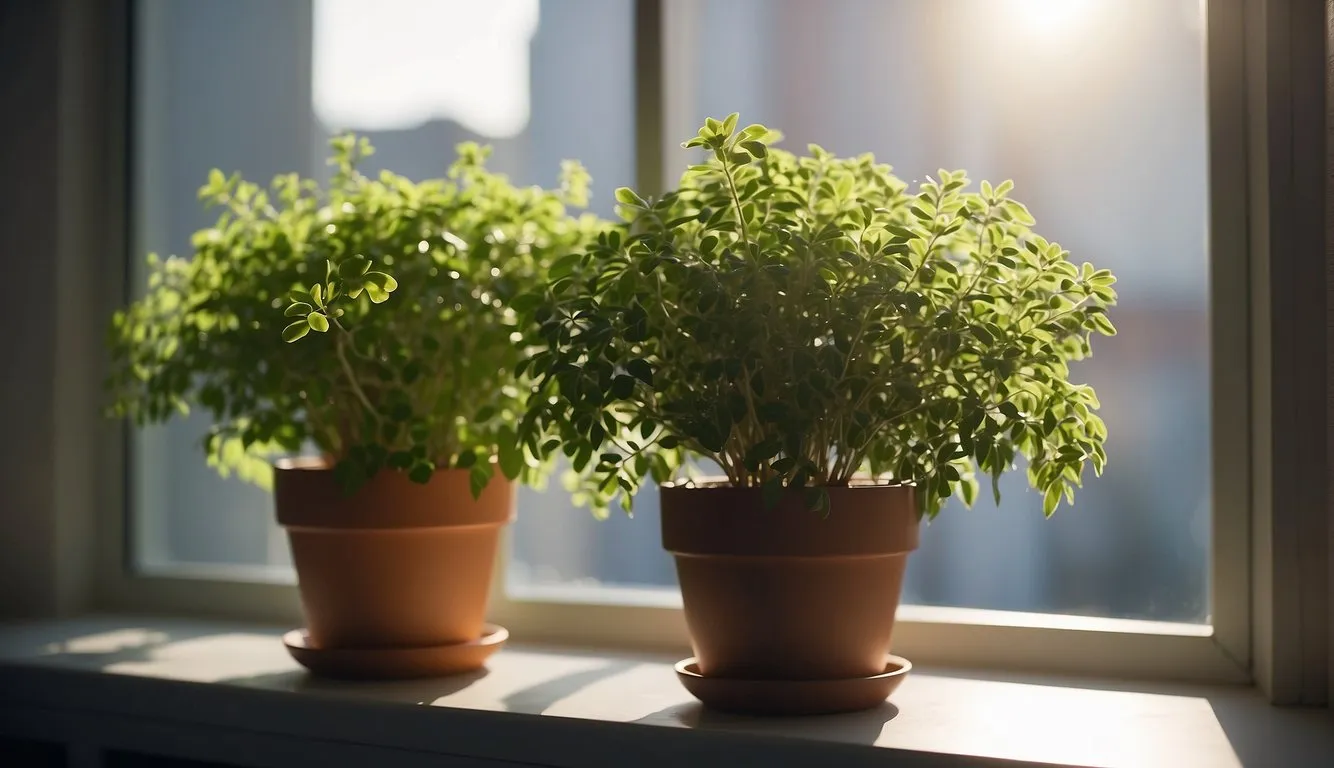
Maintaining good indoor air quality in apartments is important for our health and well-being. Poor indoor air quality can lead to various health problems, including allergies, asthma, and respiratory issues. Here are some tips to help maintain good indoor air quality in our apartment:
Ventilation
Proper ventilation is essential to maintain good indoor air quality. We should ensure that our apartment has adequate ventilation, which helps in removing pollutants and bringing in fresh air. We can open windows and doors to allow fresh air to circulate. Additionally, we can use exhaust fans in the kitchen and bathroom to remove moisture and pollutants.
Regular Cleaning
Regular cleaning of our apartment is crucial to maintain good indoor air quality. We should vacuum and dust regularly to remove pet dander, dust mites, and other allergens. We can use baking soda to absorb odors and clean surfaces. We should also clean our air conditioning filters regularly to remove harmful pollutants.
Natural Air Purifiers
Using natural air purifiers like activated carbon, bamboo charcoal, and Himalayan salt lamps can help improve indoor air quality. These natural air purifiers can absorb pollutants and odors, leaving our apartment smelling fresh and clean.
Avoid Harmful Pollutants
We should avoid using harmful pollutants like pesticides, air fresheners, and cleaning products that contain harsh chemicals. Instead, we can use natural cleaning products like tea tree oil, vinegar, and baking soda to clean our apartment.
Furnishings
When choosing furnishings for our apartment, we should select those made from natural materials like cotton, wool, and bamboo. We should avoid furnishings made from synthetic materials that can release harmful chemicals into the air.
By following these tips, we can maintain good indoor air quality in our apartment and protect our health. The Environmental Protection Agency recommends these tips for maintaining good indoor air quality in new homes.
Conclusion
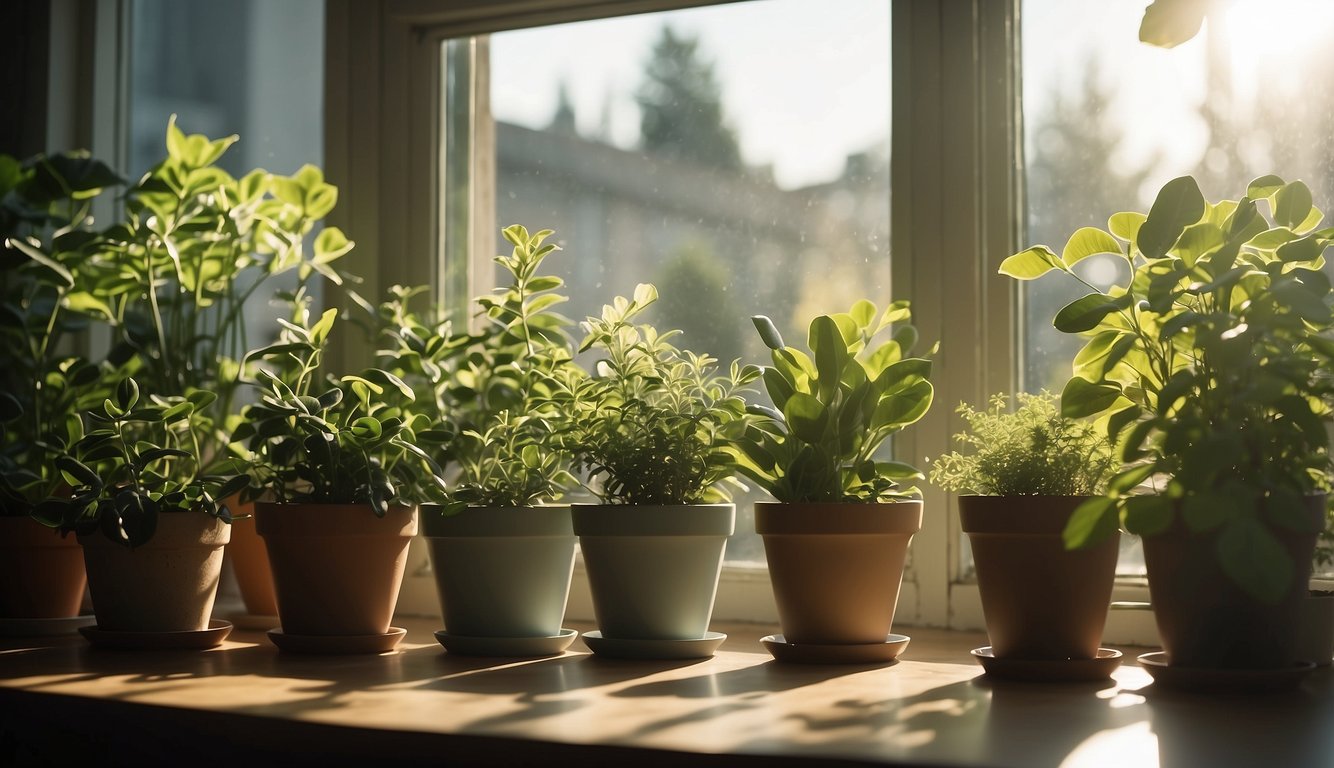
In conclusion, we have discussed various natural ways to clean the air in our apartment. We have learned that indoor air can be more polluted than outdoor air, and it can have a significant impact on our health. Therefore, it is important to take steps to improve the quality of air in our living space.
We have found that plants are an excellent natural air purifier, and we should consider adding them to our apartment. We can also use essential oil diffusers to freshen up the air and promote a relaxing atmosphere. However, we should be careful when using essential oils as some of them can be harmful to pets.
We have also learned that paraffin candles can release harmful chemicals, and we should avoid using them in our living space. Instead, we can use beeswax candles, which are a natural alternative and can help purify the air. Similarly, Himalayan salt lamps can also help clean indoor air by releasing negative ions.
When it comes to cooking, we should be mindful of the oils we use. Some cooking oils can release harmful chemicals such as toluene, which can pollute the air. Therefore, we should consider using healthier cooking oils such as olive oil or coconut oil.
Lastly, we have discussed the use of air purifiers in our apartment. While they can be effective in removing pollutants from the air, we should be careful to choose a model that is free of harmful chemicals and antibacterial agents.
By implementing these natural air cleaning methods, we can improve the air quality in our apartment and promote a healthier living environment for ourselves and our loved ones.
Frequently Asked Questions
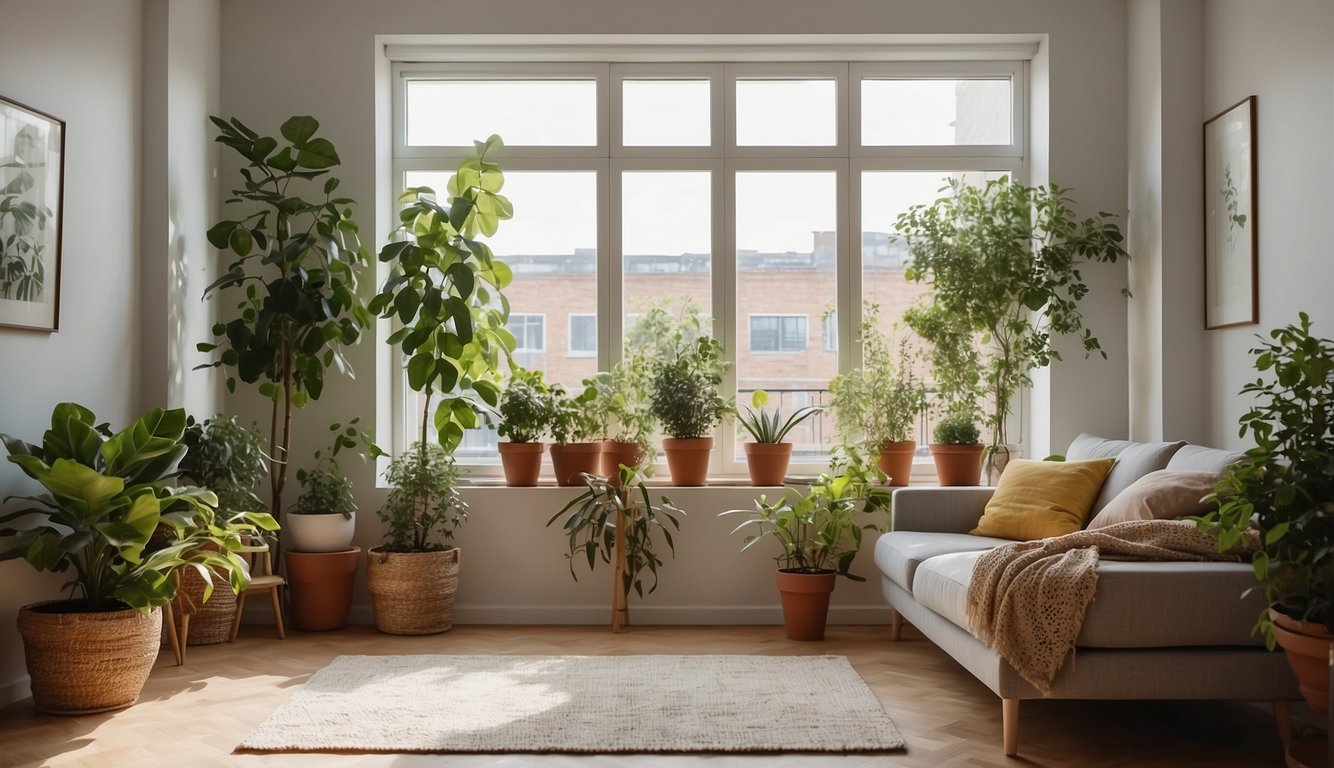
What are the best natural air purifying methods for apartments?
There are several natural air purifying methods that can be used in apartments. One of the most effective methods is to open the windows and let fresh air circulate throughout the apartment. This will help remove stale air and pollutants. Another effective method is to use natural air purifying products such as beeswax candles, salt lamps, and bamboo charcoal bags.
How can I maintain fresh air in my apartment without using artificial purifiers?
Maintaining fresh air in an apartment without using artificial purifiers can be achieved by keeping the apartment clean and tidy. Regularly dusting surfaces, vacuuming carpets, and washing bedding can help reduce the amount of dust and allergens in the air. Additionally, using natural air purifying products such as essential oils and plants can help keep the air fresh and clean.
What types of plants are most effective for air purification in small living spaces?
Several types of plants are effective for air purification in small living spaces. Some of the most effective plants include spider plants, peace lilies, bamboo palms, and snake plants. These plants are known to remove pollutants such as formaldehyde, benzene, and trichloroethylene from the air.
What are some effective strategies to reduce dust in the air at home naturally?
To reduce dust in the air at home naturally, it is important to keep the apartment clean and tidy. Regularly dusting surfaces, vacuuming carpets, and washing bedding can help reduce the amount of dust in the air. Additionally, using natural air purifying products such as essential oils and plants can help keep the air fresh and clean.
How can I ensure my apartment’s air stays clean and healthy using natural methods?
To ensure that an apartment’s air stays clean and healthy using natural methods, it is important to keep the apartment clean and tidy. Regularly dusting surfaces, vacuuming carpets, and washing bedding can help reduce the amount of dust and allergens in the air. Additionally, using natural air purifying products such as essential oils and plants can help keep the air fresh and clean.
Are there any natural products that help in purifying apartment air from common pollutants?
Yes, there are several natural products that help in purifying apartment air from common pollutants. Some of the most effective products include beeswax candles, salt lamps, and bamboo charcoal bags. These natural products are known to remove pollutants such as formaldehyde, benzene, and trichloroethylene from the air.

